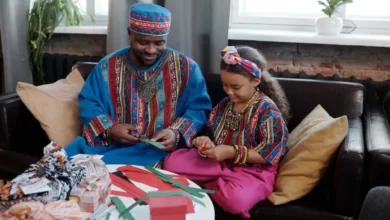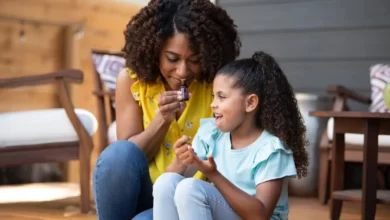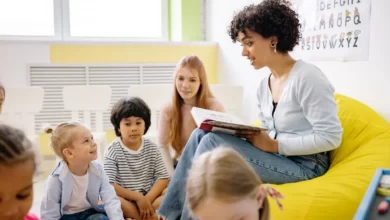Children possess an innate sense of curiosity and a boundless wellspring of energy. Harnessing these qualities through the magic of play can have a transformative impact on their development. Play is not merely a pastime; it’s a powerful tool that unlocks a world of learning, creativity, and growth.
In this article, we’ll explore the profound influence of play in children’s lives and delve into how engaging in fun activities can enhance their skills and foster holistic development.
Understanding the Power of Play
The Essence of Play
Play is the language of childhood. It’s how children explore, interact, and make sense of the world around them. From building with blocks to pretending to be superheroes, play encompasses a diverse range of activities that captivate children’s imagination and curiosity.
Learning Through Play
Play is not just about having fun; it’s a dynamic learning process. When children engage in play, they’re actively developing their cognitive, emotional, social, and physical skills. It’s through play that they grasp concepts, solve problems, build relationships, and refine their motor skills.
Holistic Development
The power of play lies in its ability to nurture holistic development. It addresses various dimensions of a child’s growth, ensuring that intellectual, emotional, and physical aspects are all nurtured in a well-rounded manner.
The Varied Facets of Play
1. Cognitive Development
Play stimulates cognitive development by encouraging problem-solving, critical thinking, and creativity. Building with blocks, solving puzzles, and engaging in imaginative play all enhance a child’s cognitive abilities.
2. Emotional Development
Play provides a safe space for children to express their emotions and practice empathy. Through role-playing and interacting with peers, children learn to understand and manage their feelings.
3. Social Development
Play is a gateway to social interactions. It teaches children how to communicate, cooperate, and negotiate with others. Games, group activities, and pretend play all contribute to developing their social skills.
4. Physical Development
Physical play, such as running, jumping, and climbing, promotes gross motor skills. Fine motor skills are honed through activities like drawing, crafting, and playing with small objects.
Fostering Skill Development Through Play
1. Language Skills
Play facilitates language development as children engage in conversations, storytelling, and imaginative play. Simple activities like reading aloud and engaging in pretend play build vocabulary and communication skills.
2. Problem-Solving Skills
Games and puzzles challenge children to think critically and solve problems. Whether it’s completing a puzzle or strategizing in a board game, these activities enhance their analytical thinking.
3. Creativity and Imagination
Play sparks creativity and imagination. When children engage in imaginative play, they invent stories, scenarios, and characters, fostering their creative thinking abilities.
4. Emotional Intelligence
Through play, children learn to understand their emotions and the emotions of others. Role-playing and storytelling allow them to explore different feelings and develop empathy.
5. Motor Skills
Physical play contributes to the development of both gross and fine motor skills. Climbing, running, and playing catch enhance gross motor skills, while activities like drawing and threading beads refine fine motor skills.
Tips for Maximizing the Benefits of Play
1. Create a Play-Friendly Environment
Set up an environment that encourages play. Provide age-appropriate toys, games, and materials that spark curiosity and creativity. Designate a play area where children can freely explore and engage in activities.
2. Balance Structured and Unstructured Play
Balance is key. Offer a mix of structured play, such as organized games or puzzles, and unstructured play, which allows children to use their imagination and creativity.
3. Participate and Engage
Play with your children. Your involvement not only strengthens your bond but also demonstrates the value of play. Engaging together in activities fosters a love for learning and exploration.
4. Encourage Diverse Activities
Expose children to a variety of play activities. From arts and crafts to outdoor adventures, a diverse range of experiences broadens their skills and interests.
5. Embrace Playful Learning
Incorporate learning into play. Turn everyday activities into learning opportunities. Counting while building blocks or identifying colors during arts and crafts seamlessly integrate learning into play.
6. Allow Independence
While guidance is important, also allow children the freedom to explore and create on their own. Independence nurtures self-confidence and problem-solving skills.
Embracing the Magic of Play
In a world that often prioritizes structured learning, the significance of play cannot be overstated. Play isn’t just a diversion; it’s a vehicle for holistic growth. The power of play lies in its ability to ignite curiosity, encourage exploration, and nurture the development of a well-rounded individual. By providing opportunities for children to engage in a wide array of activities, we empower them to learn, create, and thrive in ways that are joyful and meaningful.
As caregivers, parents, and educators, let’s recognize and celebrate the power of play. Let’s create environments that embrace its potential, allowing children to flourish, learn, and discover the world through the captivating lens of play. The journey of childhood is a magical one, and play is the key that unlocks its endless possibilities.









